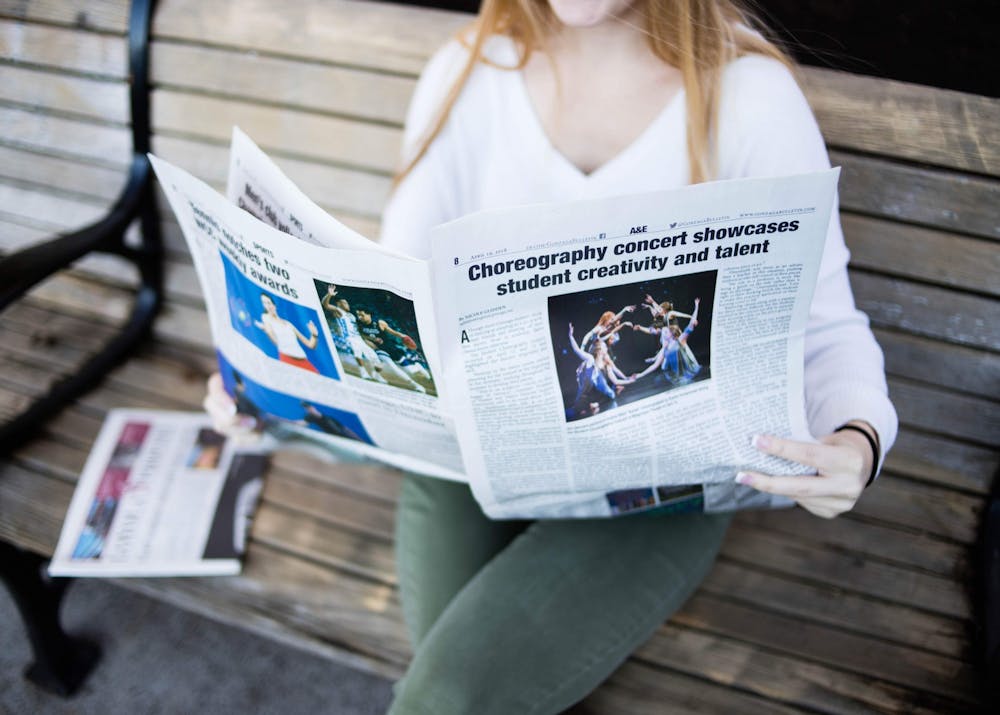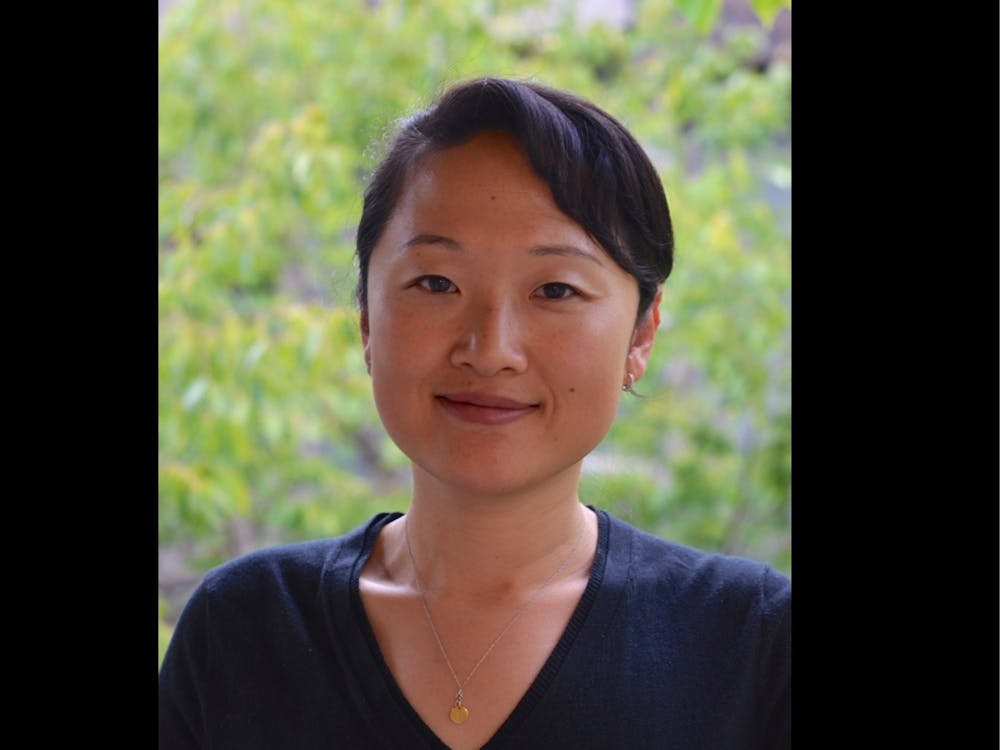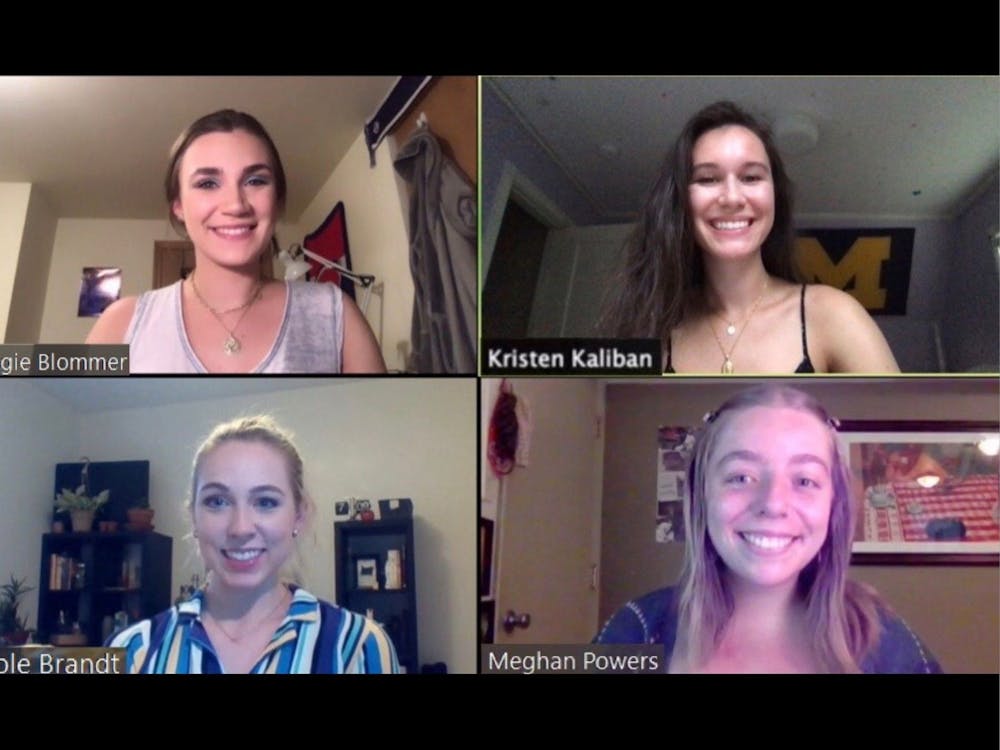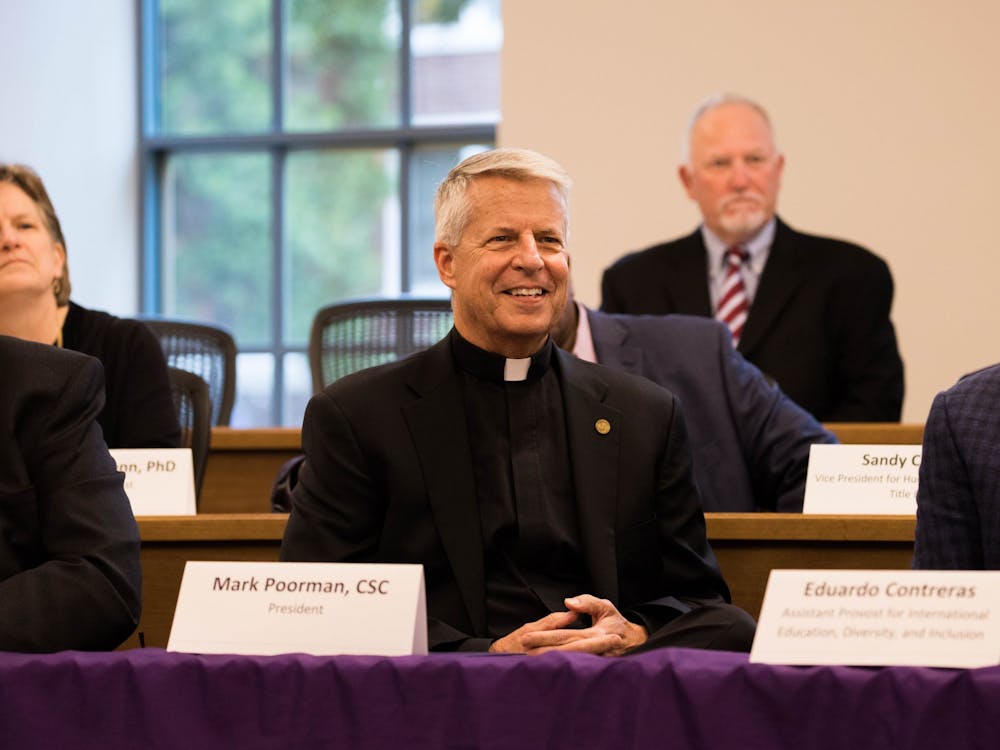A few weeks ago, The Daily Northwestern, the student newspaper at Northwestern University, one of the premier journalism schools in the country, apologized for its coverage of the public protest of former Attorney General Jeff Sessions’ speech on its campus. Specifically, in response to complaints from some student activists, the paper's editors apologized for publishing photos of the student protesters, and for using Northwestern's student directory to text protesters later to ask if they would be willing to be interviewed. The editors also removed the photos and name of one protester quoted in the coverage.
“While our goal is to document history and spread information, nothing is more important than ensuring that our fellow students feel safe — and in situations like this, that they are benefitting from our coverage rather than being actively harmed by it,” the apology said.
What do you think of The Daily’s decision to apologize and remove the name and photos?
The Beacon’s editorial board thinks it shows a lack of media literacy from both the student protesters as well as the student journalists. While “media literacy” is a complex term, the Center for Media Literacy defines it as “an understanding of the role of media in society as well as essential skills of inquiry and self-expression necessary for citizens of a democracy.”
In other words, media literacy sustains democracy itself.
One principle to navigate the complexities of media literacy is that news exists for information, not affirmation. Many people, especially in the era of the curated social media feed, expect to only read, watch and listen to information that supports their worldview. They do not even want to hear of the other side. But for a news organization to not present all sides of an event or situation, or to fail to report that a public event happened, would be misleading and not in line with journalism’s mission.
To be fair, much of the social media criticism directed at the student journalists at The Daily Northwestern was scathing and came from professional journalists seemingly wanting to prove their own false moral superiority. It also should be noted that The Daily Northwestern is not overseen by Northwestern’s journalism school, and, unlike The Beacon, does not have an adviser.
Journalism is challenging work, and it can be difficult and even agonizing to know how to make the right call. Student journalism is uniquely challenging, partly because student journalists are so close to and part of the communities they cover, and also because student journalists are learning on the job. Every day is rife with ethical quandaries and opportunities to make mistakes. Making these mistakes in the age of Twitter, when everyone appears to be an expert on everything and is quick to criticize, is arguably even more painful.
Still, The Daily Northwestern’s actions offer all of us college students a moment for reflection about the basic components of media literacy. What do we expect and what should we expect from news coverage?
The media’s job is to bear witness to events and interview people, and then carefully describe and photograph the events so that people can reach their own conclusions. As dean of the Northwestern Medill School of Journalism, Charles Whitaker, wrote in a statement, journalism “allows a society to see itself in all its splendor and strife. It often is our only chronicle of the people and events that shape and govern our existence.” Shouldn’t that reflection of society be accurate and truthful so as to inform later generations and ourselves?
The Daily Northwestern’s initial coverage of the protest followed the Society of Professional Journalists’ Code of Ethics core principle to “seek truth and report it.” It benefited the campus community to know that the protest happened. Furthermore, journalists have every right to cover a public event. The Daily Northwestern editors, while well-intentioned, should not have apologized for their coverage.
Another recent example of the desire for news to serve as affirmation instead of information involved the Harvard Crimson’s coverage of an anti-Immigration and Customs Enforcement (ICE) rally and the criticism the newspaper received. The rally organizers were upset that The Crimson contacted ICE for comment after the rally. ICE did not immediately respond to a request for comment. Unlike The Daily Northwestern editors, The Crimson did not apologize. Instead, in a note to readers, The Crimson’s president and managing editor explained their rationale for contacting ICE and that they upheld journalistic standards by doing so.
The Crimson did not provide a platform to ICE or threaten undocumented students by contacting the agency. Instead, it acted in line with the Society of Professional Journalists’ Code of Ethics direction to “diligently seek subjects of news coverage to allow them to respond to criticisms or allegations of wrongdoing.” It is reasonable for a news organization to reach out to a person or group referenced in its coverage to allow them to respond. Moreover, isn’t ICE’s lack of comment very telling?
Now, it’s important to note that a commitment to presenting all sides does not mean a Donald Trump-esque “both sides” false equivalence. Many journalists are also aware that what and who they even decide to cover matters and can provide a platform for nefarious forces if not done carefully.
Journalism and the public also benefit when reporters strive to talk to people on the margins of society who don’t typically see themselves in news coverage. Letting those voices be heard is an important value that all news organizations should have. However, it still doesn’t mean that journalists are advocates in those cases. They simply provide truthful information to let readers draw their own conclusions.
It is also necessary to minimize harm while seeking truth in journalism, especially toward people who are not in positions of power. Just because you can publish something doesn’t necessarily mean that you should. The Daily Northwestern was likely guided by this value, though it misinterpreted its application in the situation. It’s important to emphasize that the protest at Northwestern was a public demonstration, meaning that the media is able to report on the event.
The Beacon’s editorial board supports the reporting of The Crimson and the initial reporting of The Daily Northwestern in part because The Beacon has also encountered similar situations.
People have written to Beacon editors-in-chief requesting that content with their names, quotes, photos or bylines (in the case of opinion submissions) be removed, usually out of fear that it would affect their professional opportunities. The Beacon is firm in its stance to remove or change published content only if it is inaccurate or causes imminent harm to people.
Beacon reporters also regularly have to reach out to people to confirm a claim someone has made against them and/or to provide them an opportunity to respond. This ethical obligation can be especially difficult to carry out in a community as tight-knit as UP.
The editorial board also recognizes that The Beacon can and has made mistakes, but we seek to correct them and be as transparent as possible.
How would your experience on campus be different if you didn’t have The Beacon’s coverage and commitment to providing you information, not affirmation?
The Beacon promises to strive to report on-campus events, issues and community members accurately, fairly and ethically. Some of that information may upset you and may not affirm your worldview. But we invite you to reflect on journalism’s duty to present complete, truthful information and the code of ethics that guides us before determining if we have failed to uphold our duty.
The editorial board also challenges The Beacon’s readers to refine their media literacy and critically evaluate news sources, whether they come from our publication or from others. Has the news outlet legitimately made a mistake (it’s possible), or does your frustration stem from a lack of understanding of journalism’s obligations? Exercising your media literacy skills makes you a more critical consumer of the information surrounding you and in turn, a more conscientious member of our democracy.
Have something to say about this? We’re dedicated to publishing a wide variety of viewpoints, and we’d like to hear from you. Voice your opinion in The Beacon.








